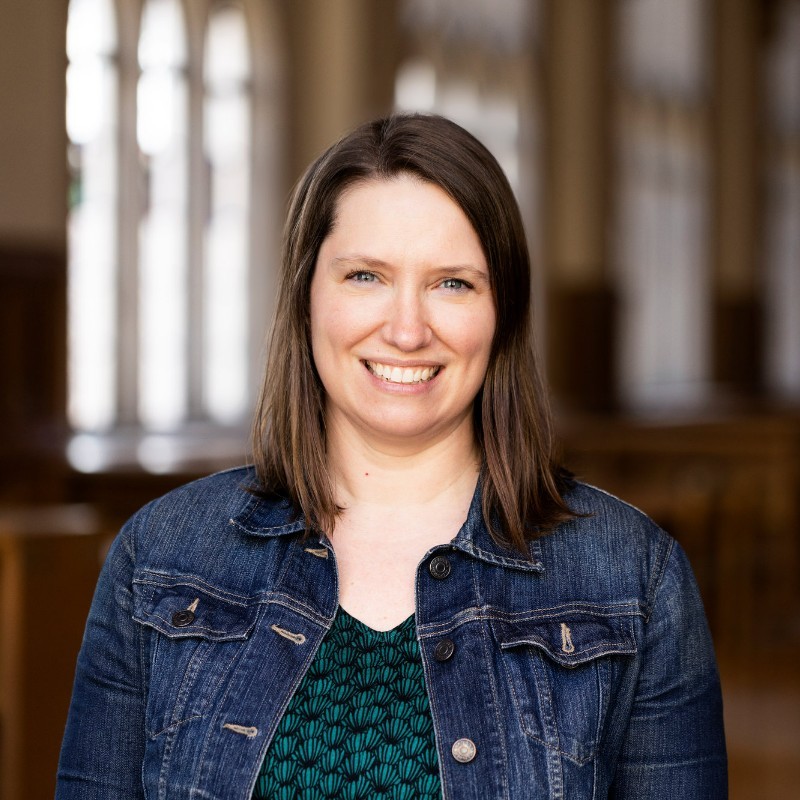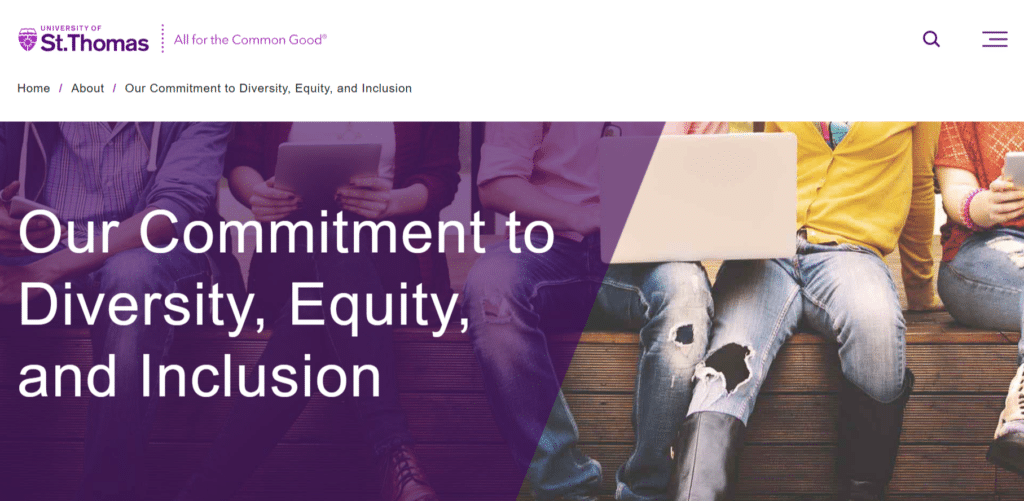Crisis Communication in Higher Ed: Pepperdine’s Wildfire Response
See how Pepperdine University redefined crisis communication in higher ed by prioritizing safety, faith, and storytelling during the California wildfires.
Featured
Diversity, equity, and inclusion (DEI) is top-of-mind for many colleges and universities today, but it is far from easy to implement. The DEI Viewfinder is a practical tool that can help make this difficult goal a reality for you and your marketing team.
Marketing inclusive content in a respectful manner requires a unique perspective, one that marketers who don’t come from an underrepresented group can’t fully understand or appreciate.
As a white man, I’m a part of the majority group (for now) in our country.
Because of my background, I know firsthand just how difficult—how impossible—it is to comprehend the experiences of others from less privileged segments of our society.
As a marketer, this can place me at a disadvantage as I have to find creative ways to connect authentically with prospective students who come from different experiences.
However, as the father of two Ethiopian children through adoption, I’ve had my eyes opened to at least some of the sensitivities of people who’ve grown up in minority groups. In no way is my experience representative of the real struggle others face, but I have a small taste.
Having the privilege to father these beautiful young black children has given me an insight into the unique challenges that minority groups face.
And because of that, a bit of a sensitivity.
But adoption is not for everyone. So what are the rest of us to do?

This incredible tool helps empower inclusion at every level of higher education.
First off in our conversation, Katie explained just what the DEI Viewfinder is.
The DEI viewfinder is all about helping our team create more inclusive content.
It’s a tool we’ve spread across the university and across our team to help people ask critical questions to make sure their work is as inclusive as possible.
The viewfinder includes nine questions. These are questions that anyone, whether you’re experienced in those concepts or not, can use to start to think critically and have good conversations about DEI as it relates to your work.
We, like a lot of universities, have a goal of expanding our audiences by opening doors to marginalized, underrepresented communities that haven’t always had access to higher education.
It’s really important from a marketing and communications perspective (often the first introduction they have to St. Thomas) to make sure we’re making everything accessible, whether that’s the process for applying or understanding what it’s going to be like to be a student here.
[With the DEI Viewfinder], you’re just making sure that we’re throwing those doors wide open and really helping people see themselves here.
In other words, the DEI Viewfinder makes it possible to easily find the viewpoint of others who do not share your perspective or experience with higher education.
That really is the core of the work we do as education marketers—finding a way to truly understand our audiences and craft messaging that resonates authentically with them.
Of course, the DEI Viewfinder is a tool, but that doesn’t mean that it’s the kind of tool you pick up once during the process of content creation through publication.
The exciting part of this is that it is a tool you can use throughout the entire marketing process so that it helps shape your messaging from conception to publication.
What we’re really trying to do with this tool is spread the responsibility for DEI conversations to more of the team.
We were finding that often our colleagues from marginalized communities were having to speak up and say, “Hey, you know, I think this is sending a message you didn’t intend.”
When we set out to create this tool, my colleague, Becky Stenlund, and I were two white, cisgendered straight women wanting to make an impact. We wanted to take some of that [inclusivity] work on ourselves and provide our other teammates with the tools to help.
Our [goal was] to make DEI work by making keeping an eye on the inclusivity of our work more than just a few peoples’ job. It’s everybody’s job!
What Katie just said is so vital for the power of inclusion to work in our marketing.
You can’t designate one person or a small taskforce on your team as the diversity guys.

The mindset, goals, and desire for inclusion have to be a priority for everyone in the marketing process—from the executive suite all the way to the point of publication.
[The DEI Viewfinder] is actually not a step in our content creation process.
It’s something that should and could be applied at every step of the process, from development to review to publishing.
At first, we were a little tempted to say, “Okay, there’s going to be a DEI review step.”
But then we realized there isn’t really a perfect time in the process to look at it that way. We really wanted to empower the whole team to have a chance to leverage the tool.
The DEI priority and culture you’re creating should branch out even to those who’re helping you from the outside.
Katie shared how they facilitate the freelancer onboarding process in regards to inclusion.
When we hire freelancers to help us with writing or art direction, we give them the DEI Viewfinder. It’s part of the briefing process.
When you brief creatives, it’s all about giving them clear objectives and expectations by which you are going to evaluate their work.
So we’re putting the Viewfinder right next to the key messages and audience that [their work] needs to appeal to in terms of how we’re going to evaluate that work.
[Being inclusive] takes more editing sometimes. But from what we’ve seen, it’s worth the effort. We find that when projects go through this process, they’re not just more inclusive, they’re actually higher quality work.
Of course, this all sounds great.
All of us want to create a more inviting and inclusive space at our educational institutions for all kinds of students.
But does the DEI Viewfinder produce real results?
We just enrolled our most diverse class of first-year students ever at St. Thomas. Also, we have the highest number of first-generation students we’ve ever had.
In my experience, many of us talk about how we want to be more inclusive on our campuses, but it’s much easier said than done!
I’m truly impressed at the results the St. Thomas team has seen using this tool.
So what can you do to get started right now to be more inclusive from conceptualization to publication in your education marketing?
First, register and download the DEI Viewfinder.
After that, follow the advice that Katie gave us in our conversation.
Open yourself up to feedback. Actively solicit feedback from other people that you work with. Find some people who come from a different perspective than you have come from.
[Also,] talk to people who have spent time engaging in these topics, particularly in higher ed. We’ve got so many wonderful scholars and their knowledge to draw from, and I’m no scholar on this stuff. I’m just a practitioner. But I’ve learned so much from those colleagues.
It’s really helped us to not just learn, but to build relationships so that when we do have a misstep, we’re hearing it straight from the person who saw it so we can make it right.
It is important for that feedback not to just come [from a small group of] colleagues from underrepresented or marginalized groups.
They have “representation fatigue.” So be cognizant of constantly asking those people to share from their perspective and go above and beyond to weigh in.
That’s a lot of what we’re trying to do with [the DEI Viewfinder]. We’re trying to spread that inclusion work to more people and enable more people to do it.
Open yourself up. Be humble. Be willing to learn, and it’ll be really rewarding.
Inclusivity is just the right thing to do.
So many times, ideas like diversity get turned into something political rather than the simple fact that it’s the right thing to do.
So check out this amazing tool Katie has helped to create and see how it helps improve your DEI efforts.
Like all of our blog post reviews of The Higher Ed Marketer podcasts, there’s so much more to learn in the podcasts themselves.
Listen to our interview with Katie Jensen to get even more insights into:
Then you’ve got to know how to write for the web. That’s why we want to send you our popular ebook: Writing for the Web: 7 Secrets to Content Marketing Success for Education Marketers!
With this helpful resource, you’ll learn how to:
In short, you’ll be able to write the copy that makes your digital marketing strategy work for you. Download your copy today!
Featured image via stthomas.edu
Subscribe to The Higher Ed Marketer podcast today!